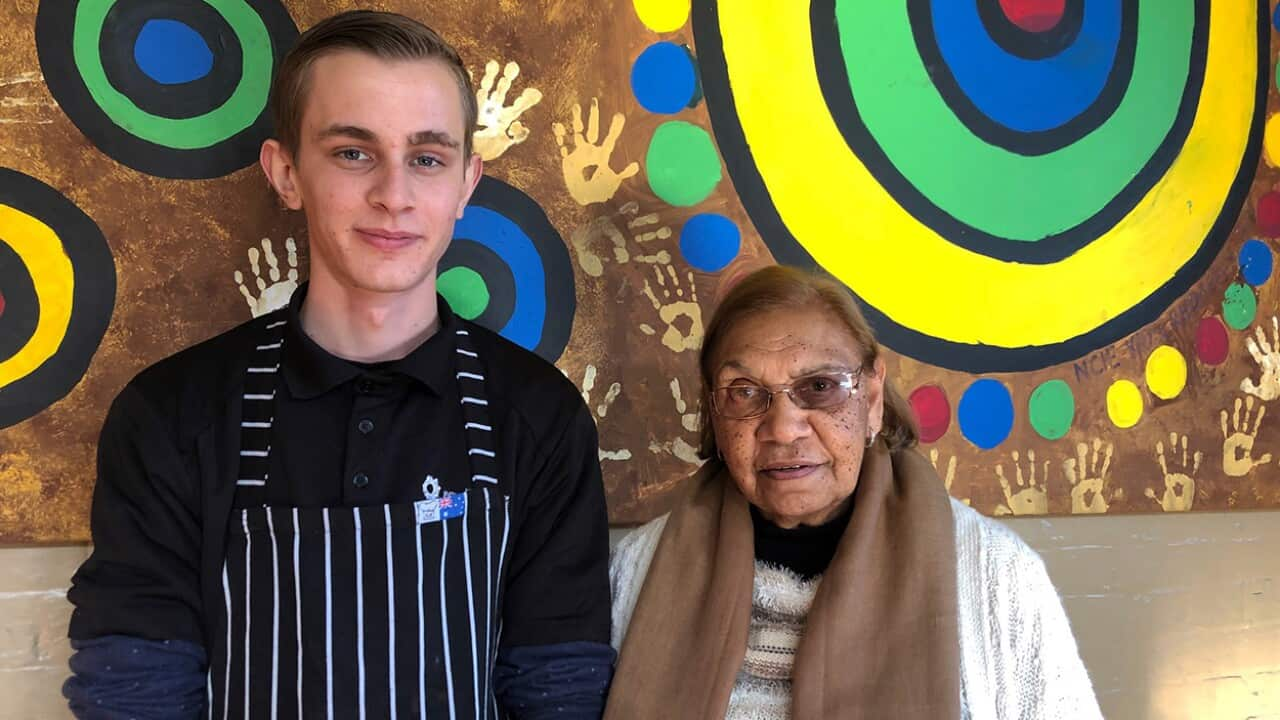When Jeanette Page was thinking about what she wanted to do with her life - quite a big question for anyone, but especially when school is a not-too distant memory - she made a bold decision.
The then 20-year-old packed up her belongings and left her small hometown in Queensland to headed to the centre of Australia, Uluru, where she enrolled in the (VNITA). Five years later, she still works in Uluru and is now making bold moves up the career ladder.
VNITA was established in 2011 as part of a plan to increase the number of Indigenous employees at the , which is operated by Voyages Indigenous Tourism Australia (VITA).
The reason why Page moved to Uluru is simple, she says: there simply weren’t enough jobs where she lived.
“I’m from a little town in North Queensland, near Townsville, and at the time there just wasn’t much available employment. When I came here, I immediately fell in love with the place. It’s such a beautiful place to work and everybody is really supportive and willing to train and teach,” she says.” Indigenous Australians are more likely than non-Indigenous to be without work, with the. That rate is even higher for Indigenous people who live in remote and rural communities.
Indigenous Australians are more likely than non-Indigenous to be without work, with the. That rate is even higher for Indigenous people who live in remote and rural communities.

Jeanette Page now heads up Tali Wiru, the resort's prestigious under-the-stars dining experience. Source: Ayers Rock Resort
Through VNITA, trainees can undertake a Certificate III in hospitality, tourism or retail, or Certificate II in horticulture. During their course, trainees work at the resort and after completion, they have a guaranteed job either at the resort, or with another tourism operator. They can also enrol in leadership programs, which supports them in climbing to supervisor and manager roles.
The program is clearly working, with Indigenous Australians now making up 37 per cent of all VITA employees.
The traineeship program is headed by Tracy Walker, a Melbournian who has lived in Uluru for the past seven years, and has a clear enthusiasm for her job and the young people she works with.
The reason why Page moved to Uluru is simple, she says: there simply weren’t enough jobs where she lived.
One of the reasons that Walker joined VITA as group learning and development manager was because she wanted to work with young Indigenous people and support them as they took their first steps in the workforce.
“One of the strategic goals of the company is to offer opportunities to Indigenous staff and I felt like that was a big purpose for me,” she explains. “I wanted to give back and at the same time, to have the chance to share my experiences with those who can benefit from them.
“I love that I can work with the trainees, especially once they’ve transitioned out of the academy and they move into the workplace; watching them progress gives me such pleasure.” The focus on training and employing Indigenous people occurred about eight years ago, when VITA was taken over by the Indigenous Land and Sea Corporation.
The focus on training and employing Indigenous people occurred about eight years ago, when VITA was taken over by the Indigenous Land and Sea Corporation.

The Voyages Indigenous traineeship program includes recruits from the local area and around Australia. Source: Ayers Rock Resort
Walker calls Page one of VITA’s “stars” and less than four years after completing her traineeship, Page heads up one of the resorts’ most prestigious offerings, Tali Wiru, a six-star, under-the-stars dining experience.
I wanted to give back and at the same time, to have the chance to share my experiences with those who can benefit from them.
“When I first started, I second guessed myself a lot but Tracy really helped build my confidence and self-esteem; I was very withdrawn and quiet and I never dreamed where I’d be right now,” Page says.
“During training, if there were things I didn’t understand, Tracy would write them down for me, and that really helped a lot. On a training and personal level, it was great that someone like her would take the time to do that; some other people might get a bit frustrated.”
“Doing this training has laid down the foundation for where I am now,” she says. “Everything I’ve learned has helped me along the way.”
October is , an annual event that promotes the variety and depth of Indigenous businesses nationally.




